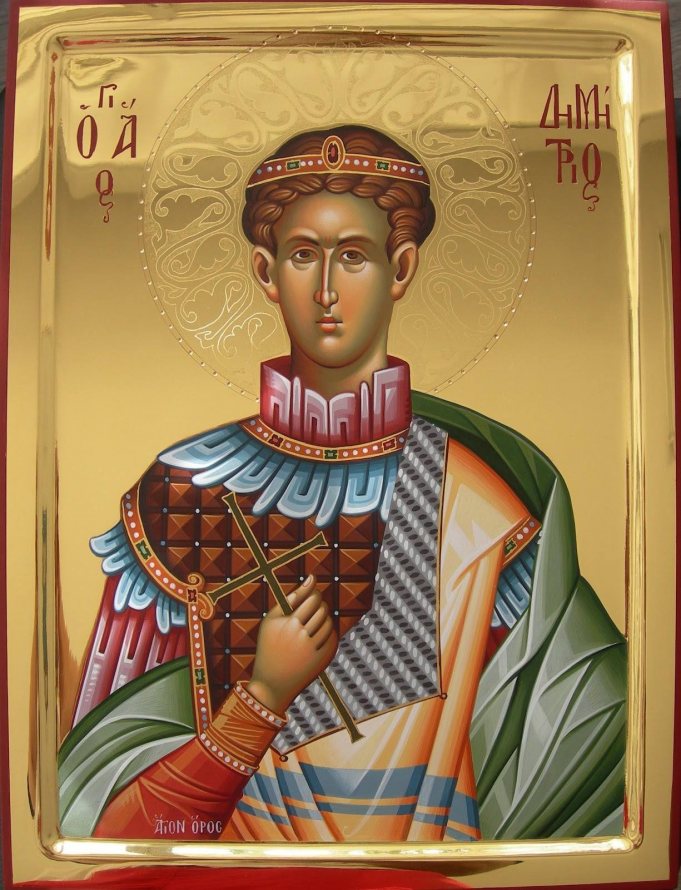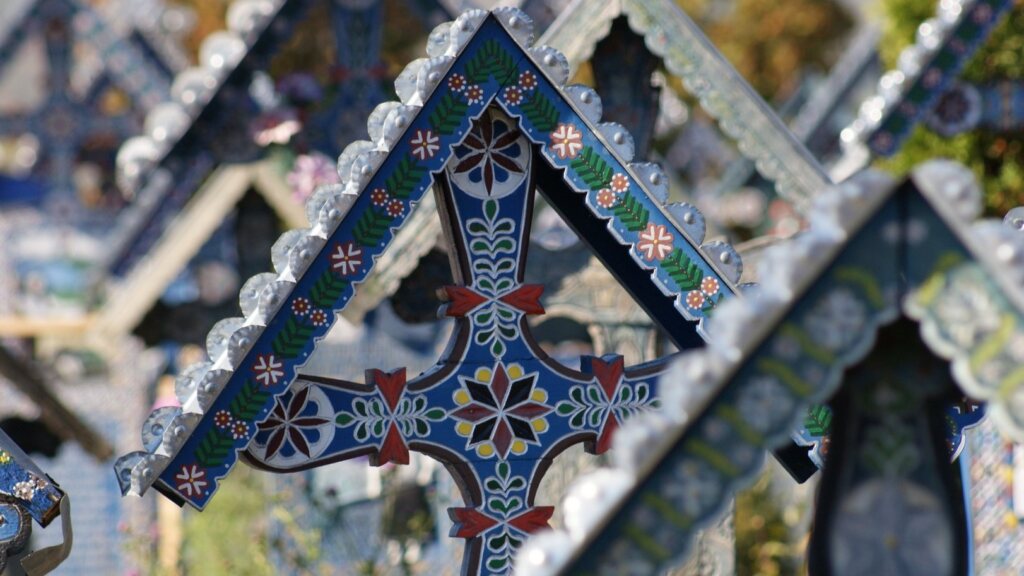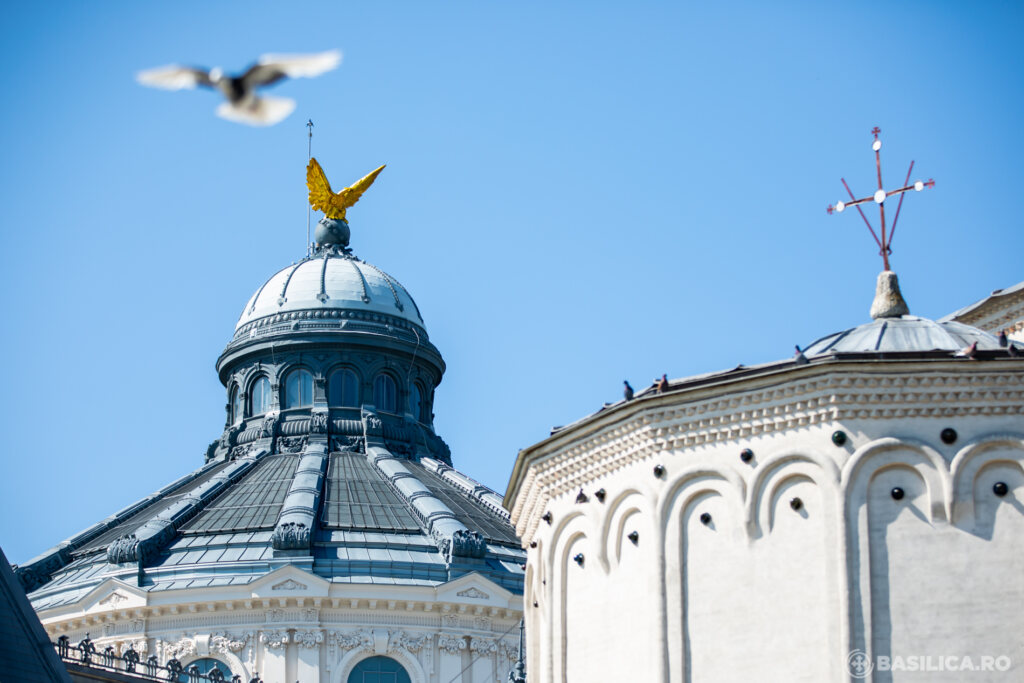The Great Martyr Demetrius the Myrrh-gusher of Thessalonica was the son of a Roman proconsul in Thessalonica.
Three centuries had elapsed and Roman paganism, spiritually shattered and defeated by the multitude of martyrs and confessors of the Savior, intensified its persecutions. The parents of Saint Demetrius were secretly Christians, and he was baptized and raised in the Christian Faith in a secret church in his father’s home.
By the time Demetrius had reached maturity and his father had died, the emperor Galerius Maximian had ascended the throne (305). Maximian, confident in Demetrius’ education as well as his administrative and military abilities, appointed him to his father’s position as proconsul of the Thessalonica district.
The main tasks of this young commander were to defend the city from barbarians and to eradicate Christianity. The emperor’s policy regarding Christians was expressed simply, “Put to death anyone who calls on the name of Christ.” The emperor did not suspect that by appointing Demetrius he had provided a way for him to lead many people to Christ.
Accepting the appointment, Demetrius returned to Thessalonica and immediately confessed and glorified our Lord Jesus Christ. Instead of persecuting and executing Christians, he began to teach the Christian Faith openly to the inhabitants of the city and to overthrow pagan customs and idolatry.
The compiler of his Life, Saint Simeon Metaphrastes (November 9), says that because of his teaching zeal he became “a second Apostle Paul” for Thessalonica, particularly since “the Apostle to the Gentiles” once founded at this city the first community of believers (1 Thess. and 2 Thess.).
The Lord also destined Saint Demetrius to follow the holy Apostle Paul as a martyr. When Maximian learned that the newly-appointed proconsul was a Christian, and that he had converted many Roman subjects to Christianity, the rage of the emperor knew no bounds. Returning from a campaign in the Black Sea region, the emperor decided to lead his army through Thessalonica, determined to massacre the Christians.
Learning of this, Saint Demetrius ordered his faithful servant Lupus to distribute his wealth to the poor saying, “Distribute my earthly riches among them, for we shall seek heavenly riches for ourselves.” He began to pray and fast, preparing himself for martyrdom.
When the emperor came into the city, he summoned Demetrius, who boldly confessed himself a Christian and denounced the falsehood and futility of Roman polytheism. Maximian gave orders to lock up the confessor in prison. An angel appeared to him, comforting and encouraging him.
Meanwhile the emperor amused himself by staging games in the circus. His champion was a German by the name of Lyaeos. He challenged Christians to wrestle with him on a platform built over the upturned spears of the victorious soldiers.
A brave Christian named Nestor went to the prison to his advisor Demetrius and requested a blessing to fight the barbarian. With the blessing and prayers of Demetrius, Nestor prevailed over the fierce German and hurled him from the platform onto the spears of the soldiers, just as the murderous pagan would have done with the Christian.
The enraged commander ordered the execution of the holy Martyr Nestor (October 27) and sent a guard to the prison to kill Saint Demetrius.
At dawn on October 26, 306 soldiers appeared in the saint’s underground prison and ran him through with lances. His faithful servant, Saint Lupus, gathered up the blood-soaked garment of Saint Demetrius, and he took the imperial ring from his finger, a symbol of his high status, and dipped it in the blood. With the ring and other holy things sanctified by the blood of Saint Demetrius, Saint Lupus began to heal the infirm. The emperor issued orders to arrest and kill him.
The body of the holy Great Martyr Demetrius was cast out for wild animals to devour, but the Christians took it and secretly buried it in the earth.
During the reign of Saint Constantine (306-337), a church was built over the grave of Saint Demetrius. A hundred years later, during the construction of a majestic new church on the old spot, the incorrupt relics of the holy martyr were uncovered. Since the seventh century a miraculous flow of fragrant myrrh has been found beneath the crypt of the Great Martyr Demetrius, so he is called “the Myrrh-gusher.”
Several times, those venerating the holy wonderworker tried to bring his holy relics, or a part of them, to Constantinople. Invariably, Saint Demetrius made it clear that he would not permit anyone to remove even a portion of his relics.
Saint Demetrius is regarded as a protector of the young, and is also invoked by those struggling with lustful temptations.
Troparion, Tone 3:
The entire world has found you to be a great champion in times of peril; for you put the heathen to flight, O victorious one. As you brought to naught the boasts of Lyaeus, and gave courage to Nestor in the stadium, in the same way, O Holy Great Martyr Demetrios, entreat Christ God, that He grant us great mercy.







